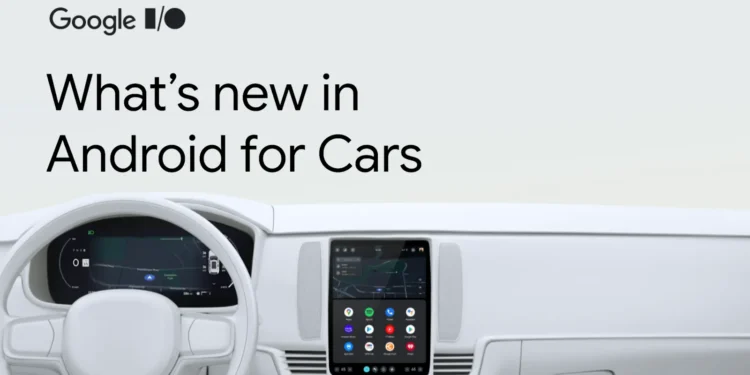In a major move set to revolutionize the driving experience, Google has announced that its cutting-edge generative AI, Gemini, will soon be available in cars equipped with Android Auto. This launch, which is expected to roll out in the next few months, was revealed at Google’s Android Show ahead of the 2025 I/O developer conference. The integration of Gemini into Android Auto promises to make driving not only safer but also more productive and fun.
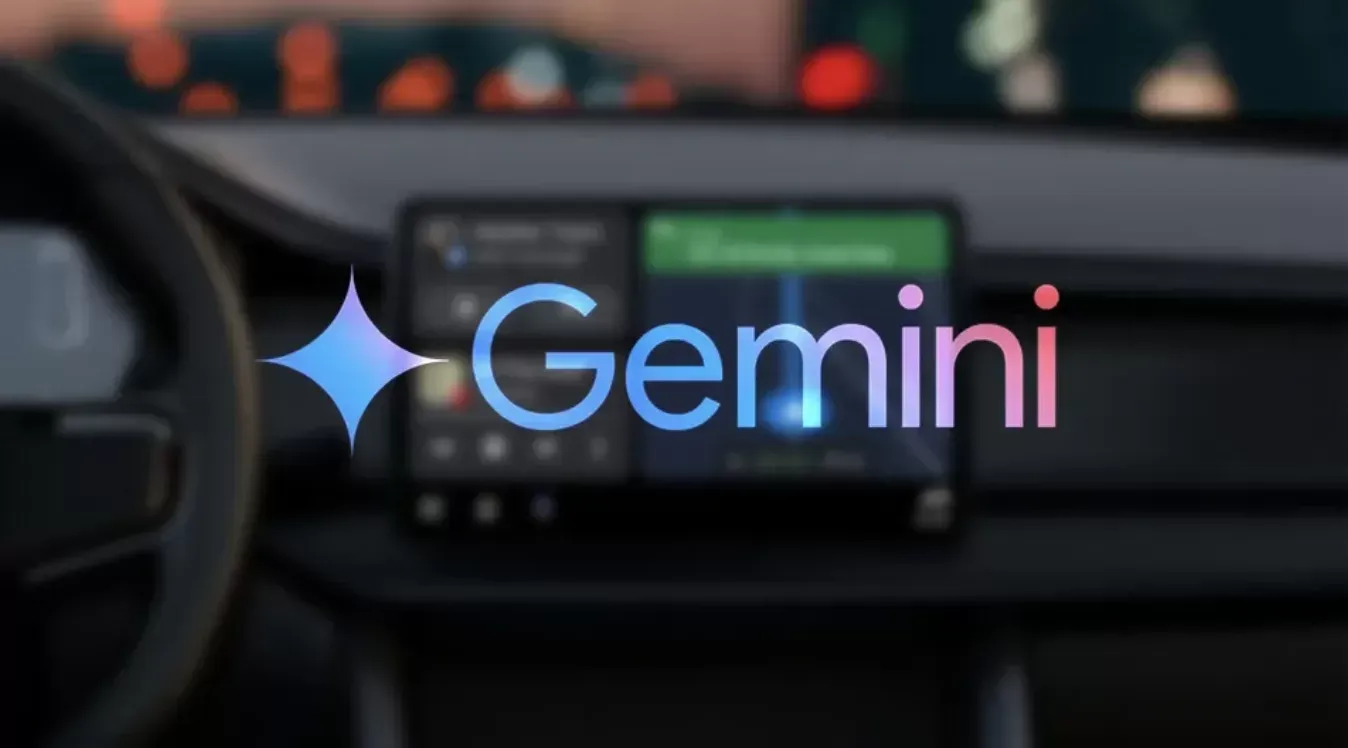
A Game-Changing Transformation for In-Vehicle Technology
Google’s foray into in-vehicle AI is set to be one of the most significant changes to car technology in years. Patrick Brady, the VP of Android for Cars, was enthusiastic about the transformation. “This is really going to be, we think, one of the largest transformations in the in-vehicle experience that we’ve seen in a very, very long time,” Brady shared during a virtual media briefing ahead of the event. The incorporation of Gemini into Android Auto aims to enhance the user experience by offering more than just a voice assistant—it’s designed to make the entire driving process more intuitive and enjoyable.
Gemini’s Role in Android Auto Smarter and More Natural Interaction
One of the standout features of Gemini’s integration into Android Auto is its ability to function as a highly advanced voice assistant. Unlike the traditional Google Assistant, Gemini is capable of understanding and processing natural language, making it easier for users to communicate without sounding robotic. Drivers and passengers can ask Gemini to send texts, play music, get directions, and perform a variety of other tasks, all while speaking naturally.
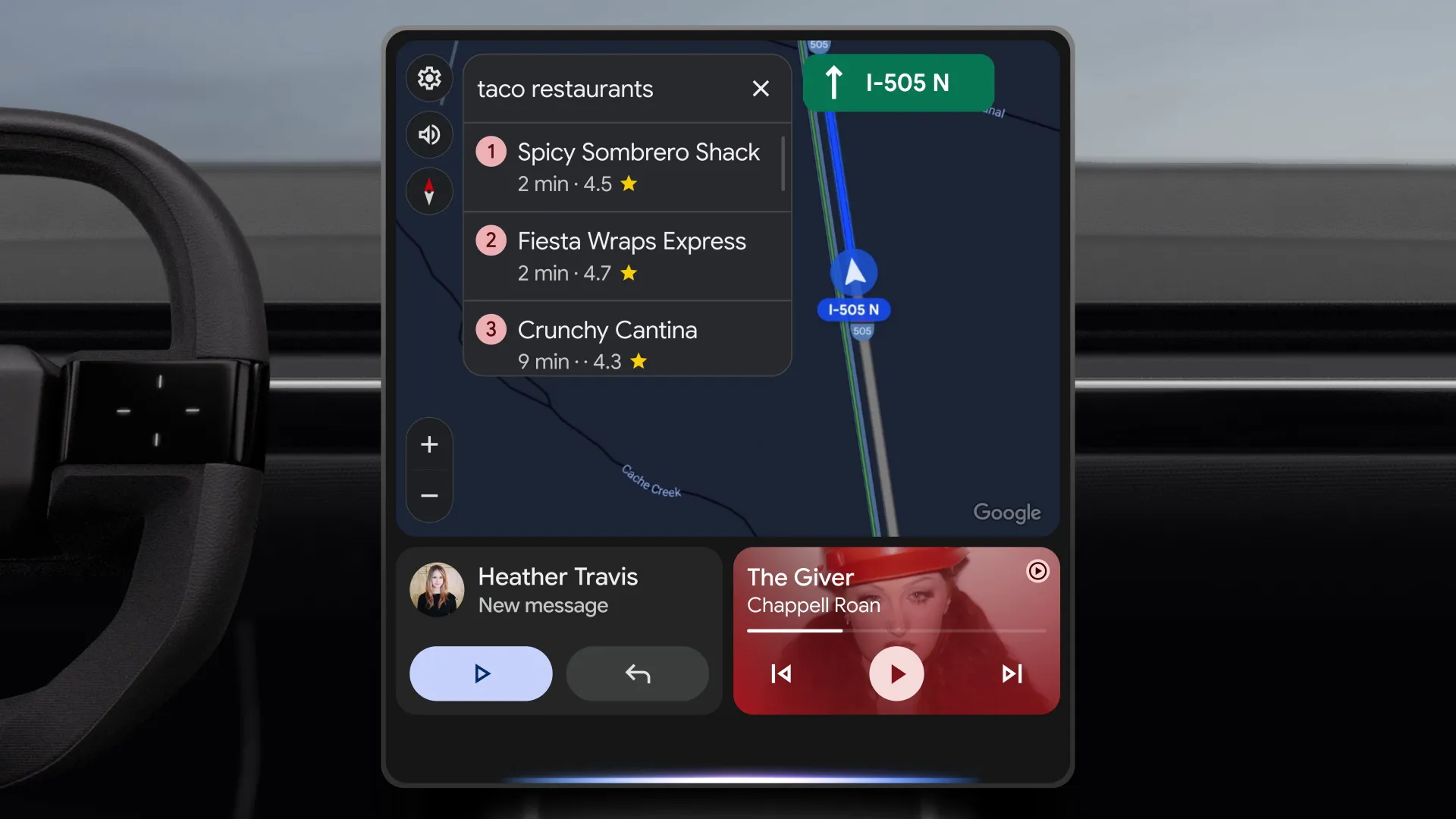
Brady emphasized that Gemini’s capabilities go beyond simple commands. For instance, it can remember preferences like the language in which a user prefers to receive text messages, offering a personalized experience. Additionally, Gemini’s ability to handle specific requests is one of the most exciting aspects of its integration. For example, if a driver is looking for a good place to eat along their route, Gemini can offer tailored suggestions like “taco places with vegan options,” drawing from Google’s vast database of restaurant listings and reviews.
Gemini Live A Conversation Companion for Drivers
Another groundbreaking feature that will be introduced with Gemini on Android Auto is “Gemini Live.” This option allows the AI to always be listening, ready to engage in real-time conversations on a wide array of topics. Whether you’re looking for travel ideas, brainstorming recipes, or even discussing history, Gemini can converse on virtually anything.
While this may sound like a potential distraction for drivers, Google believes the opposite will be true. The natural language processing capabilities of Gemini are designed to reduce cognitive load, making interactions smoother and more intuitive. Brady explained that, “The natural language capabilities will make it easier to ask Android Auto to do specific tasks with less fuss, and therefore Gemini will reduce cognitive load.” This innovation aims to streamline the in-car experience and make driving less about pressing buttons and more about seamlessly interacting with the vehicle’s AI.
Overcoming Technical Challenges and Enhancing Reliability
Of course, there are still several challenges to address as Google rolls out Gemini across Android Auto and Google Built-In cars. The biggest hurdle is ensuring consistent performance in a dynamic environment like a moving vehicle, which can frequently lose and regain cell tower connections. Currently, Gemini is powered by Google’s cloud processing, but Brady mentioned that the company is working with automakers to incorporate more in-car computing power. This would allow Gemini to run more efficiently at the “edge,” directly within the vehicle, which would improve both performance and reliability.
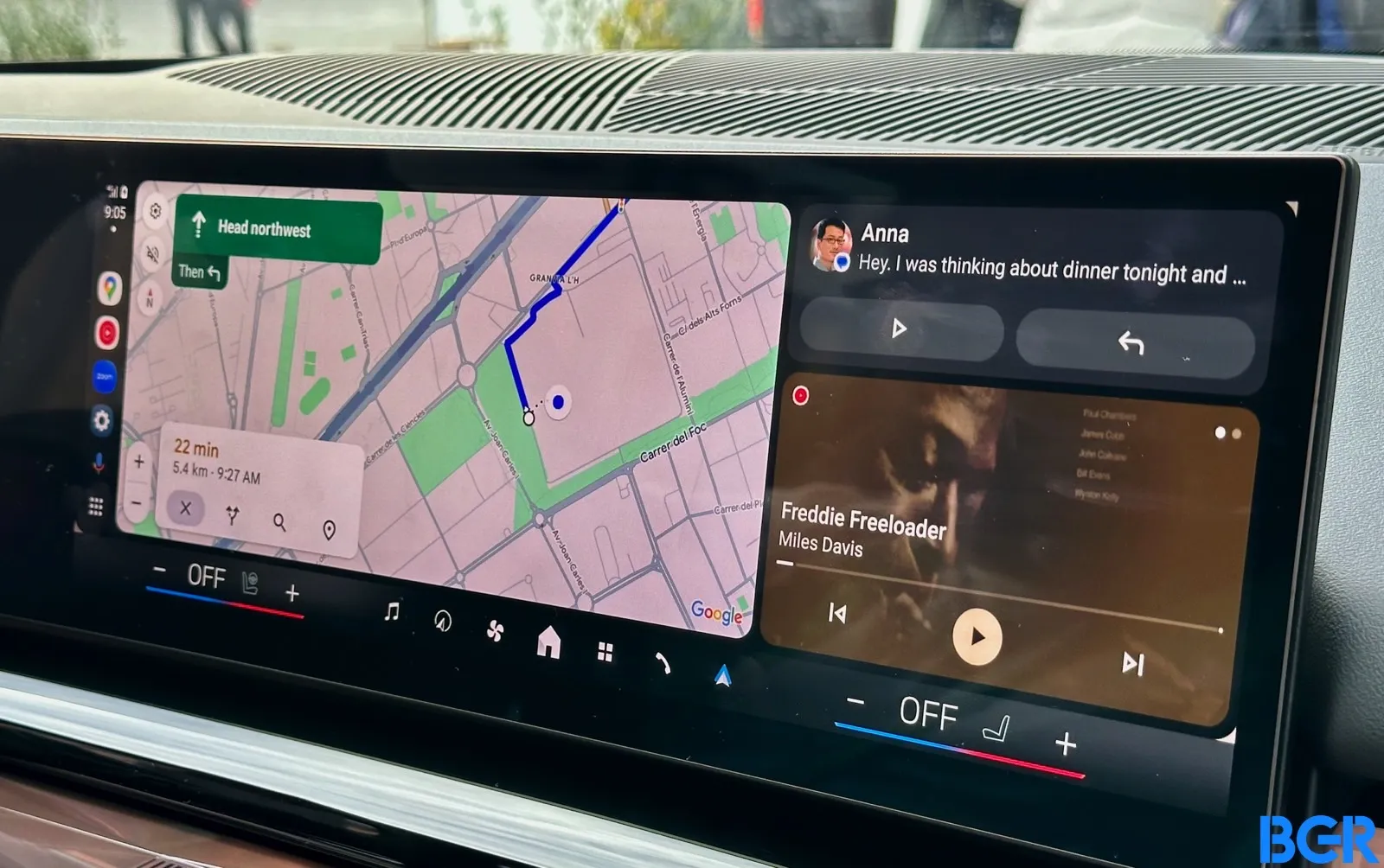
Additionally, modern cars generate a significant amount of data from onboard sensors, cameras, and other systems. While Brady didn’t confirm whether Gemini would be able to tap into these data streams, he acknowledged the exciting potential that could come with future integration. “We definitely think as cars have more and more cameras, there’s some really, really interesting use cases in the future here,” Brady said.
Global Expansion and Multilingual Support
Gemini’s capabilities on Android Auto will be available in all countries that currently support Google’s generative AI model. This global rollout will include support for more than 40 languages, ensuring that users around the world can enjoy the benefits of this advanced AI integration. Whether you’re navigating unfamiliar streets or simply seeking a more interactive and personalized driving experience, Gemini is designed to bring the future of in-vehicle technology to today’s roads.
What’s Next for Gemini and Android Auto
As the release of Gemini on Android Auto approaches, the integration promises to be a pivotal moment for both Google and the automotive industry. By offering a more powerful, AI-driven driving experience, Google is pushing the boundaries of what’s possible in-car technology. While there are still a few details to be ironed out, the vision for a more connected, intuitive driving experience is rapidly becoming a reality.
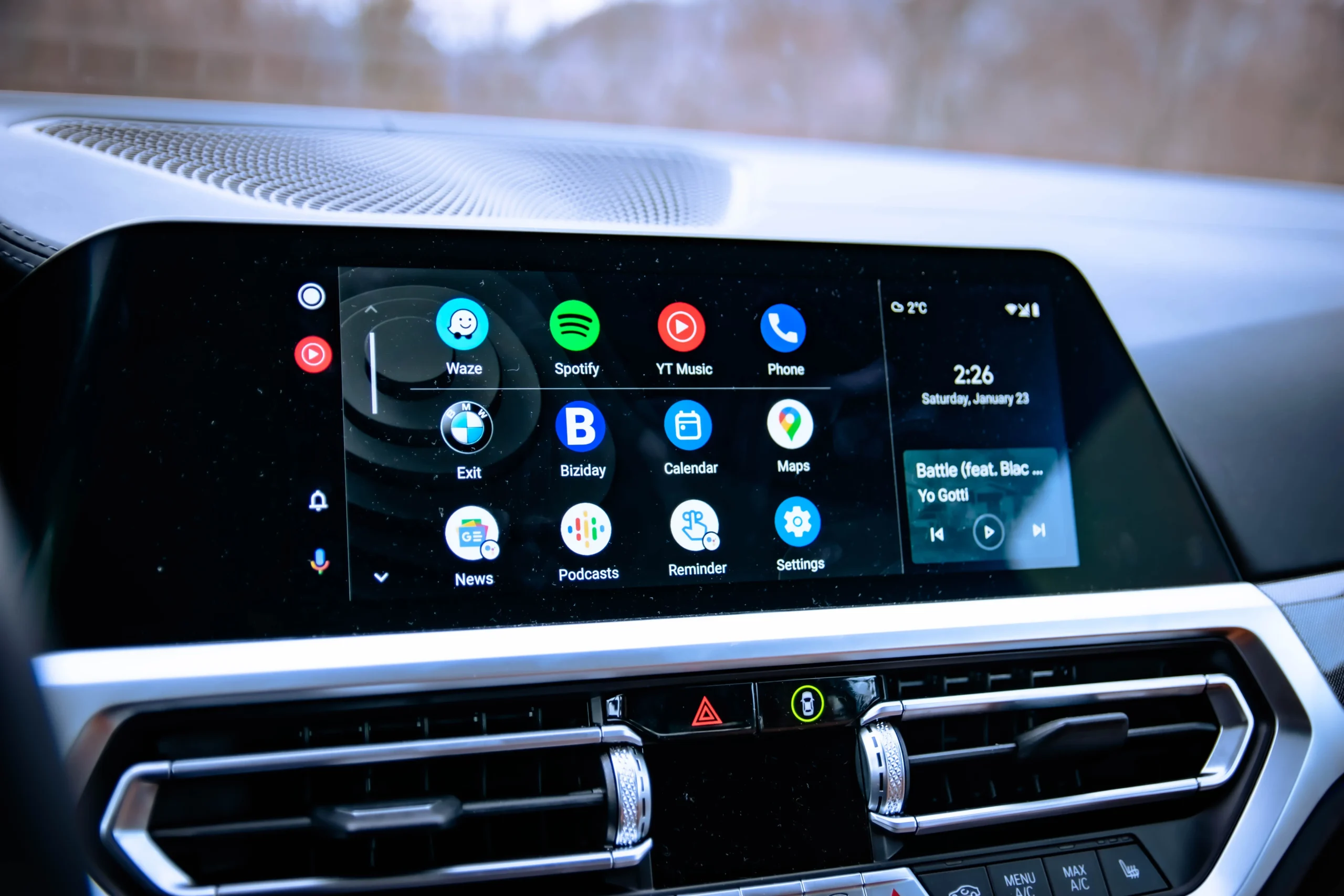
As Google continues to innovate, we can expect even more advanced features and capabilities to be introduced in future updates, enhancing everything from navigation to entertainment and beyond. The addition of Gemini to Android Auto is just the beginning of a new era for in-car AI, making driving smarter, safer, and more enjoyable than ever before.
Google’s decision to bring its generative AI, Gemini, to Android Auto is a bold step forward in the evolution of in-car technology. With enhanced voice commands, personalized assistance, and always-on conversations, Gemini promises to transform the driving experience into something far more intuitive and engaging. As this groundbreaking feature rolls out across vehicles, the future of connected driving looks more promising than ever before.

